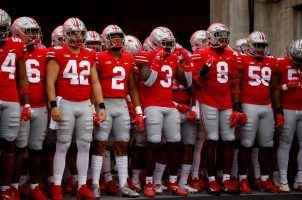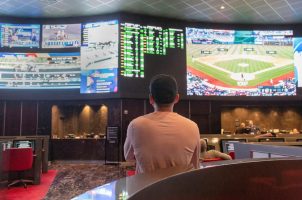Study: Sports Betting Regulations Can Have Adverse Effects, Drive Consumers Offshore
Posted on: March 7, 2024, 11:37h.
Last updated on: March 7, 2024, 12:47h.
A new study concludes that sports betting regulations designed to protect athletes can have adverse impacts and drive consumers to offshore sportsbooks.

The International Betting Integrity Association (IBIA) in Belgium recently commissioned a study to determine how policymakers unknowingly impact a market and fuel activity they sought to prevent through regulations. The IBIA probe was conducted by H2 Gambling Capital, a data intelligence firm based in England and focused on the global gaming industry.
The study, “The Availability of Sports Betting Products: An Economic and Integrity Analysis,” makes several key assumptions based on the review. One highlight researchers discovered is that when regulators prohibit certain bets, that often prompts bettors to seek those options in unregulated markets.
“The central finding of the study is that alongside other regulatory and economic factors — including taxation and advertising policy — there is a strong correlation between the availability of sports betting products and onshore channeling,” the report’s executive summary read.
Regulations Drive Offshore Activity
H2 Gambling said it compiled anonymized data from IBIA members in 12 markets where sports betting is allowed. Those jurisdictions included Australia, Brazil, Canada (excluding Ontario), Denmark, Germany, Great Britain, Italy, Netherlands, Ontario, Portugal, Spain, and Sweden. The US was excluded because of the bespoke regulatory model that varies from state to state.
Researchers found that when a market excludes a type of bet, with one example being a player prop, bettors wishing to make such a wager won’t simply fold on that endeavor but will instead seek a business willing to accept the bet. In the US, player props involving college student-athletes are banned in nearly all of the 38 states that have legal sports betting.
NCAA President Charlie Baker says college player props increase the likelihood of players being harassed and threatened on social media and in person. IBIA researchers, however, say banning those bets doesn’t eradicate such wagers, but instead funnels bettors to offshore sportsbooks.
While politically attractive, this study confirms that bet restrictions are a blunt and counterproductive instrument,” said IBIA CEO Khalid Ali. “They don’t prevent betting; they just drive it into the unregulated market where most of the problems with sports integrity arise.”
Along with protecting student-athletes, Baker and others in favor of prohibiting such bets argue the ban on player props decreases the risk of game integrity being compromised. With a player prop, a rogue bettor seeking an upper hand might buy off a student-athlete to throw a game, opponents of the bets argue.
More Bets, More Onshore Demand
Researchers deduced that the more betting options a market allows, the more demand there is for the regulated environment.
In Great Britain, H2 Gambling investigators calculated that 97% of sports bettors opt to make their wagers through regulated books. The UK is home to an abundance of bets, including on politics.
Compared with Germany, which restricts in-play betting and which tends to allow only moneyline, spread, and over/under bets, H2 found that about 40% of bettors patronize unregulated sports betting channels.
“The evidence-based and data-driven analysis in this study shows that sports betting product restrictions adversely impact onshore channeling and that in turn has negative consequences for regulatory oversight and taxable revenues. A market that seeks to maximize the economic impact and social protections achieved via an onshore regulated framework requires a wide sports betting product availability,” the report concluded.
Related News Articles
Ohio Sports Betting Rules Amended To Prohibit College Player Props
Former Texas Governor’s Sports Betting Estimates Contain Hyperbole, Say Experts
US Sports Betting Growth Propelled by Young, High-Income White Males – Poll
US Sportsbook Brand Leaders Scale Back Advertising Spend in 2023
Most Popular
Mirage Las Vegas Demolition to Start Next Week, Atrium a Goner
Where All the Mirage Relics Will Go
Most Commented
-
Bally’s Facing Five Months of Daily Demolition for Chicago Casino
— June 18, 2024 — 12 Comments
















No comments yet